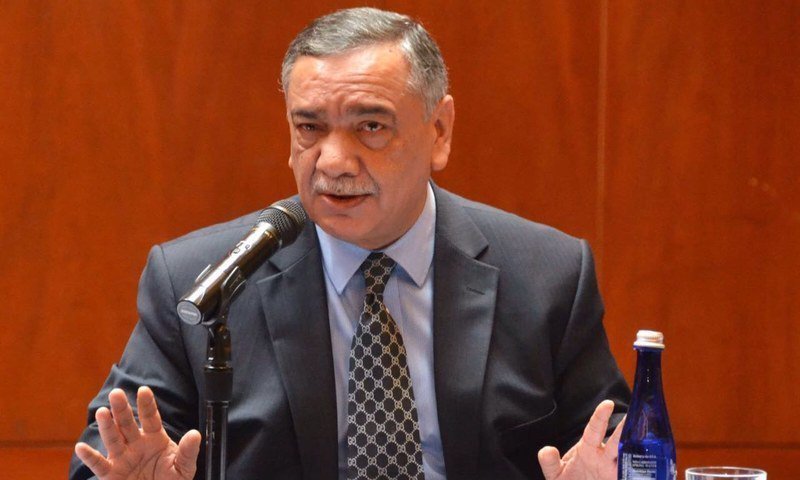
A three-member Supreme Court bench, headed by CJP Khosa, on Tuesday was hearing a case pertaining to the hike in school fees by private schools.
During the hearing, the other member of the bench Justice Ijazul Ahsan said, "Education and health were never a priority of the government. The children of private schools avail better education and end up with good jobs while quality difference between the private and government schools is increasing.
"If the private schools shut down, the whole educational system will collapse. The private schools can be made to take fair profit."
Faisal Siddiqui, lawyer for the parents of the schoolchildren, adopted the stance that the larger bench of the Sindh High Court had given the verdict in the parents' favour.
"The high court declared the hike in school fees as illegal without the approval of the authorised authority and has allowed an annual increase of 5%, which is appropriate," the lawyer informed the court.
The CJP inquired that on what basis has 5% been declared appropriate?
The lawyer replied that in the rules of the authorised authority, 5% increase was declared appropriate.
"The high court has set the annual hike of 5% and declared that the government can impose appropriate restrictions on private businesses," said the lawyer.
He said that judicial verdicts were present in which education "has been declared a business". "Indian courts have declared education to be a profession and not business," he added.
The CJP inquired whether fundamental rights could be enforced in private business.
The lawyer replied, "Education is the basic constitutional right and the society cannot be sacrificed for the interest of a few people."
He said children were specially mentioned in the Constitution, adding that it was the responsibility of the state to provide basic right to education.
The third member of the bench, Justice Faisal Arab, said many government schools had no teachers.
Justice Ahsan said education and health were never among the priorities of the government.
"A quota can be reserved for deserving students in private schools," remarked Justice Ahsan.
Advocate Siddiqui replied that they were not in favour of imposing unnecessary restrictions on private schools, adding that private schools could take profit but without exploitation.
Justice Ahsan said the government fixes the prices of vegetables and fruits.
The CJP remarked, "Prove that 5% hike in school fees is appropriate."
After Advocate Siddiqui concluded his arguments, Khyber-Pakhtunkhwa advocate general appeared before the court and informed that a detailed report on the matter would be submitted.
The CJP remarked that the court would listen to him later as the government was a heavy responsibility. "This entire matter is because of the government," said the CJP. "People are perturbed and we need to ask the government a lot of things regarding this."
"We need the statistics and figures of the government schools in areas and lanes and how many teachers are posted there. People are draw salaries while sitting at home," remarked the CJP.
As education holds great importance, the CJP said, government lawyers should come fully prepared.
Khosa said he had received education at a government school.
"Now the standard of education at government schools is not the same. Now, children from small cities like me do not get such chances," he said. "The issue of education is very close to my heart."
He said, "In the past after receiving education, people had etiquettes. In the past buses and roads were old, yet the people were civilised. Now the buses and roads have improved, but the people have Abu Jahl in their hearts."
Due to shortage of time, the hearing of the case was adjourned till Wednesday.

1732441915-0/BeFunky-collage-(12)1732441915-0-165x106.webp)

1732438802-0/BeFunky-collage-(11)1732438802-0-165x106.webp)



1732432596-0/BeFunk_§_]__-(45)1732432596-0.jpg)
1732438009-0/BeFunk_§_]__-(48)1732438009-0.jpg)








COMMENTS
Comments are moderated and generally will be posted if they are on-topic and not abusive.
For more information, please see our Comments FAQ